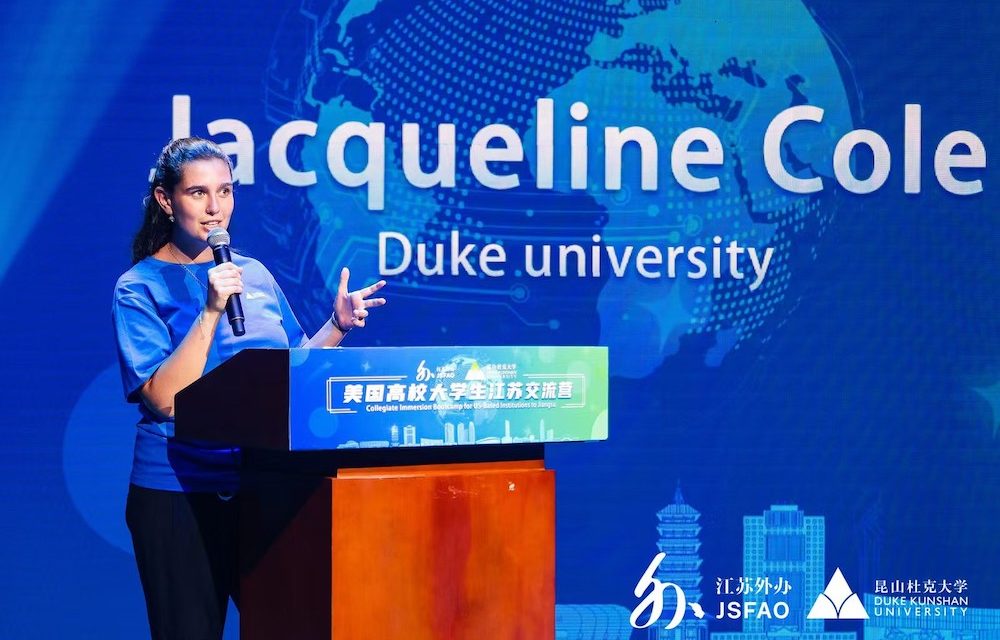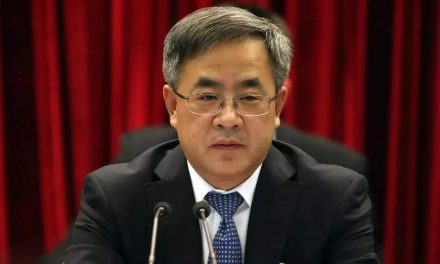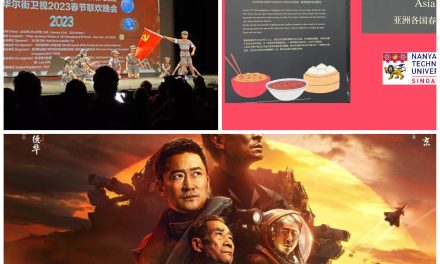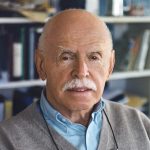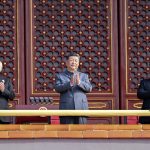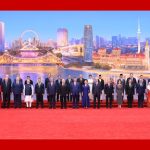By Jeanette Tong
On a rainy December day in Manhattan, I met Jackie, a junior at Duke University majoring in Political Science and Journalism, in a coffee shop. Because of her background in Chinese studies, she had participated in the “Jiangsu Exchange Camp for American College Students” this past summer—an event organized by the Jiangsu Provincial Foreign Affairs Office and Duke Kunshan University, the latter a joint venture in China of the highly selective American university.
On the surface, this trip appeared to offer Duke students exposure to Chinese culture, opportunities to learn from local experts, and chances to build lasting connections with people from China and around the world. It was a golden opportunity to see a different part of the world, whose government has had growing conflict with America’s. But in reality, it was part of a broader United Front initiative, aligned with Xi Jinping’s November 2023 innocuous-sounding pledge in San Francisco to invite 50,000 American youths to visit China over five years, in actuality to do the CCP’s bidding.
Jackie described the eight-day program as “weird, shady, awkward, and ridiculous.” After returning to the U.S. with lingering doubts, she searched online and came across an article I co-authored with Professor Osborne. “Your article made so much sense,” she said, “With your explanation, I finally realized there were other agendas behind the event.” This new understanding led to our insightful conversation in the coffee shop. Here are some highlights from her experience:
Itinerary Changes Before the Camp Began
When Jackie and other students initially signed up, the schedule looked like a typical cultural-exchange program: starting daily at 9 AM, visiting museums, touring scenic spots, and enjoying light cultural activities. However, once they arrived in China, the organizers in Jiangsu abruptly changed the schedule. Each day now began at 7 AM and was packed with museum visits and lectures, one after another. Jokingly, I said, “Sounds like an intensive brainwashing agenda.” Jackie responded, “Exactly!” As the 80 American students grew mentally exhausted from this relentless programming, they encountered something even more unsettling.
The Ever-Present Propaganda Machine
From the moment they landed to the moment they left, about a dozen cameramen followed them everywhere. These cameramen filmed the group constantly and frequently interviewed the students, asking questions like, “Do you love China?” and “Do you support U.S.-China friendship?” Jackie, as a non-Asian American, became a primary target. At first, the novelty made it seem harmless, but after being asked the same questions day after day, everyone felt increasingly uncomfortable.
Immediate Self-Censorship
Much of the students’ time was spent on buses shuttling between the museums and lectures. They were aware of China’s strict controls on speech, and the bus rides were filled with questions like “Can we say this? Can we say that? Will we get in trouble for that? If I say something, could I be arrested?” It’s a distressing picture: bright, critically trained American students, sent by their own universities into a setting where they felt pressured to self-censor under an authoritarian regime. Is this what our elite academic institutions should be facilitating?
Worse still, younger students— from high school, middle school, even elementary school— have also been sent into such “propaganda camps” by misguided American revenue-driven educators. Under the totalitarian shadow, they smile, cooperate, and say nothing critical.
A Propaganda Model That Avoids Real Issues
The word these students heard most often was “friendship.” It was repeated so frequently that it became tiresome. Phrases like “We need to restore friendship,” “We need to create friendship,” and “We need to maintain friendship” filled the air. Yet no one explained why the relationship between the two countries had soured in the first place, or even who “we” were—America. students and the Chinese people? American students and the agenda-driven and totally controlling CCP? There was no honest discussion of underlying issues. I felt a certain relief that Jackie, with her journalism background, saw through the charade. But how many other students would bother to question it? Most were likely too polite, too grateful for the free airfare and accommodations, or too unsure about the consequences to speak up.
Confronted with a benevolent façade masking a repressive reality, our young people remained silent—partly out of kindness, partly out of fear. Educators, aware of this dynamic, offered no guidance. Because no immediate harm was visible, they stayed quiet and even helped this totalitarian, propagandistic project recruit more American students. This is not only a failing of Duke University’s leadership, but of the American educational system as a whole.
Back in the U.S.
After returning, Jackie received an invitation to another United Front event, “My Story with China,” at the CCP-owned Bank of China in New York. After New York’s Consul General Huang Ping’s sudden and scandalous departure, Chinese Ambassador Xie Feng attended instead. Once again, the event’s content was filled with empty rhetoric about friendship and emotional bonds. Jackie’s doubts only grew deeper.
“Why Does the CCP Do This?” Jackie looked at me, hoping that I, as a professional researcher and documenter of CCP United Front work, could give her an answer.
CCP officials must meet Xi’s mandate of bringing 50,000 American students to China over five years. Xi’s goal is to foster a pro-China faction at the grassroots level—among the public, academia, and local governments—to counter Washington’s containment policies. He wants to restore pre-trade-war conditions that allow for ongoing intellectual property theft, uneven trade agreements, and a steady flow of Western wealth into China, fueling its rise as a global superpower.
“So what role did we play as American students?”
“You have been turned into pawns. And you shouldn’t be. It was your own university administrators and educators who put you in this untenable position. Those individuals should be held accountable.”
I looked at Jackie, a young, joyful, and justice-minded woman, and said, “We need to stop this. This is just not right!”
What should American schools do?
American universities justifiably pride themselves on the ways in which they broaden their students’ horizons. But denying them to the People’s Republic of China unmonitored does the opposite. Jackie’s experience is not an isolated case. In a July report, Bloomberg News also noted similar experiences among other American students. American universities invited to send students to today’s China are now obligated to think about whether such trips, given the things not said and questions not asked about them, are consistent with their mission. It would have been unthinkable to send such students on a shepherded tour in the totalitarian countries of the past. Tours to today’s China should be thought of the same way.
Jeanette Tong is a research fellow at Citizen Power Initiatives for China.

